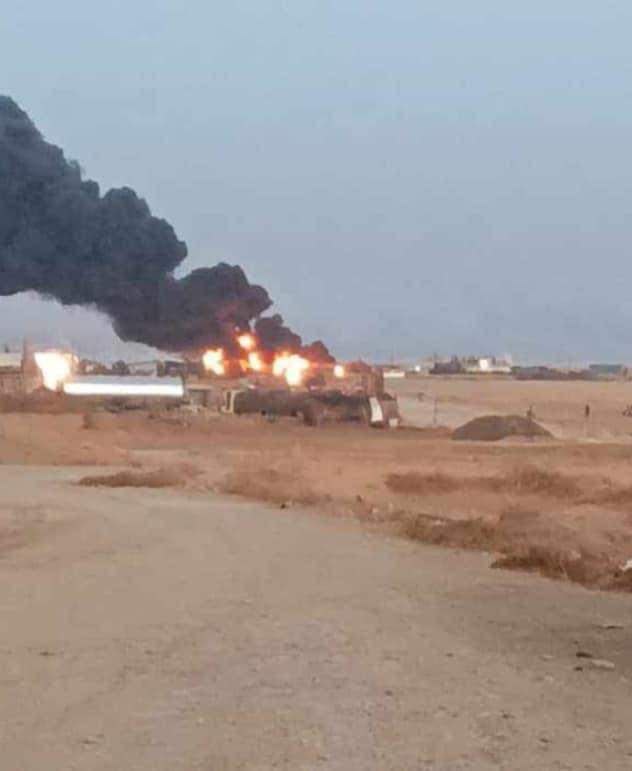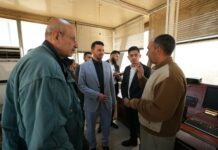
Turkey launched retaliatory strikes on Kurdish forces in Syria and Iraq this week after the Kurdistan Workers’ Party (PKK) claimed responsibility for a deadly attack on Turkish Aerospace Industries (TUSAŞ) headquarters in Ankara on October 23. Turkish officials confirmed that two assailants linked to the PKK targeted the defense facility in Ankara, resulting in five deaths and 22 injuries. In response, Turkey conducted widespread airstrikes against positions of the PKK and Syrian Democratic Forces (SDF), which Ankara asserts is an extension of the PKK operating in Syria.
Turkish President Erdogan said Friday that the attackers infiltrated Turkey from northern Syria, through areas controlled by the SDF and the Autonomous Administration of North and East Syria (AANES). Erdogan vowed to eliminate terrorist threats “at their source,” explaining that Turkey would act to neutralize these threats wherever they originated, including Syria. “We will do whatever is necessary,” he said in statements to Turkish media, referring to recent strikes on sites controlled by the SDF.
Since the attack, Turkish forces have escalated air and artillery bombardments on what it identifies as “terrorist” positions in northeastern Syria and Iraq. Turkey’s Defense Ministry announced that 32 PKK and affiliated sites were targeted in recent operations, leading to a significant number of casualties, though specific figures were not released. The ministry stated the airstrikes were conducted under Turkey’s right to self-defense as specified in Article 51 of the UN Charter.
Erdogan also criticized the US for its ongoing support of the SDF, calling it an “extension of the PKK in Syria” and accusing Washington of indirectly enabling the group’s operations in the region. The president argued that Western backing provides the group with protections that he claims will not last indefinitely.
Turkish officials have identified the two assailants in the Ankara attack as PKK members, Ali Orik, also known as “Roger,” and Mini Sevgin Alçıçek. Both attackers were killed following a shootout with Turkish security forces at the TUSAS facility. The Turkish Interior Minister, Ali Yerlikaya, confirmed these details and said that intelligence reports indicated that the attackers had been directed by PKK leadership from Syria.
Turkey’s retaliatory operations extended into northern Syria’s Hasakah province, Qamishli, and Ayn al-Arab, and sites in northern Iraq, regions where Turkey claims PKK and SDF forces are based. Turkey-backed factions of the Syrian National Army (SNA) forces also participated in artillery strikes on SDF-held areas in the northern Aleppo countryside, targeting Tal Rifaat and other locations.
The SDF has denied involvement in the Ankara attack, but tensions remain high, with both sides exchanging fire. The SDF reported counterattacks on Turkish military bases in the Hasakah region, stating that it targeted bases in Aziziyah and other areas as retaliation for the Turkish strikes, which it says caused significant infrastructure damage in SDF-held territory, including oil fields and energy facilities. The SDF claims that Turkish operations have led to civilian casualties, reporting 12 killed and 25 injured in recent airstrikes.
Internationally, Washington has expressed concern over Turkey’s intensified military campaign, though it acknowledged Turkey’s right to respond to a “terrorist attack” on its soil. A US State Department spokesperson said on Friday that the US is monitoring the situation closely and urged all parties to de-escalate to avoid civilian harm and to focus on achieving stability in northern Syria. The Pentagon’s Deputy Press Secretary Sabrina Singh reaffirmed Turkey’s right to “hold accountable the people who carried out the attack,” though the US maintains support for the SDF in the fight against the Islamic State (ISIS).
Turkey’s ongoing operations in Syria and Iraq highlight Ankara’s commitment to curbing PKK and affiliated group activities in the region, as tensions with the SDF and disputes over the group’s US backing add layers of complexity to the region’s security landscape. The Turkish Defense Ministry said Friday that it remains “determined to neutralize any threat” posed by the PKK and similar organizations operating near Turkey’s borders.








